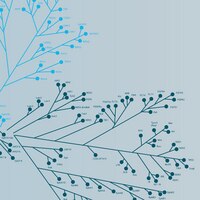The serine/threonine kinase Pim-2 is a transcriptionally regulated apoptotic inhibitor.
Fox, Casey J, et al.
Genes Dev., 17: 1841-54 (2003)
2003
Show Abstract
Growth factor withdrawal results in the termination of factor-dependent transcription. One transcript that declines rapidly following growth factor deprivation of hematopoietic cells is the serine/threonine kinase pim-2. When constitutively expressed, Pim-2 conferred long-term resistance to a variety of apoptotic stimuli including growth factor withdrawal and endogenous levels of Pim-2 contributed to growth factor-mediated apoptotic resistance. Pim-2 expression maintained cell size and mitochondrial potential independently of the PI3K/Akt/TOR pathway. Pim-2-dependent maintenance of cell size and survival correlated with its ability to maintain rapamycin-resistant phosphorylation of the translational repressor 4E-BP1 and phosphorylation of the BH3 protein BAD. These results establish Pim-2 as a direct link between growth factor-induced transcription and a novel, kinase-dependent pathway that promotes cell-autonomous survival. | 12869584
 |
The PIM-2 kinase phosphorylates BAD on serine 112 and reverses BAD-induced cell death.
Yan, Bin, et al.
J. Biol. Chem., 278: 45358-67 (2003)
2003
Show Abstract
Hematopoietic growth factors mediate the survival and proliferation of blood-forming cells, but the mechanisms through which these proteins produce their effects are incompletely known. Recent studies have identified the pim family of kinases as mediators of cytokine-dependent survival signals. Several studies have identified substrates for the pim-1 kinase, but little is known about the other family members, pim-2 and pim-3. We have investigated potential functions for the pim-2 kinase in factor-dependent murine hematopoietic cells. We find that pim-2 mRNA and protein expression are regulated by cytokines similarly to pim-1. Three PIM-2 protein isoforms are produced in cytokine-treated cells. All three forms are active kinases, and the short (PIM-2(34 kDa)) form is the most active at enhancing survival of FDCP1 cells after cytokine withdrawal. This pro-survival function involves inhibition of apoptosis and caspase activation. Enforced expression of PIM-2(34 kDa) kinase does not appear to regulate expression of BCL-2, BCL-xL, BIM, or BAX proteins. However, the kinase can phosphorylate the pro-apoptotic protein BAD on serine 112, which accounts in part for its ability to reverse Bad-induced cell death. Our results indicate that pim-2 functions similarly to pim-1 as a pro-survival kinase and suggest that BAD is a legitimate PIM-2 substrate. | 12954615
 |










